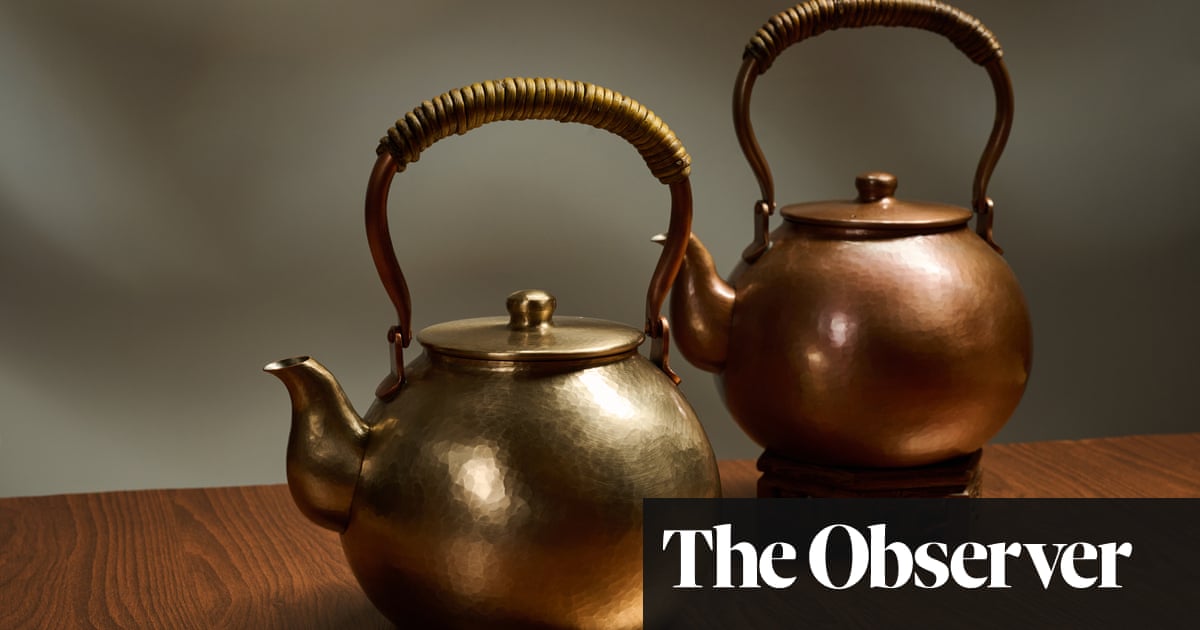What makes good satire? The answer might vary depending on who you ask. What is more unifying, however, is what doesn’t. Most would agree it’s things like punching down, cheap jokes, obviousness or, worst of all, failing to actually be funny.
We saw a unique combination of all of the above last weekend, when the American live sketch comedy show Saturday Night Live (SNL) attempted to parody the hit HBO series The White Lotus, setting it among current White House staff. Alongside middling caricatures of Donald Trump and the US health secretary, Robert F Kennedy Jr, the pre-recorded skit portrayed the English actor Aimee Lou Wood, who has a gap between her teeth, and her character from the show, Chelsea, as uncharacteristically stupid, with bulging eyes and buck teeth.
“I did find the SNL thing mean and unfunny,” Wood said in a series of Instagram stories responding to the sketch, which drew widespread ire before her criticism. “I am not thin skinned. I actually love being taken the piss out of when it’s clever and in good spirits … I don’t mind caricature – I understand that’s what SNL is. But the rest of the skit was punching up and I/Chelsea was the only one punched down on.”
This kind of foible is rare for SNL. (The show has since apologised to Wood.) But lazy, unfunny sketches have become the show’s new norm. Despite its popularity since 1975, when it was created by the American comedy legend Lorne Michaels, SNL’s reputation and relevance has begun to dwindle over the last decade. Which is why the news that there will be a British version of the show coming out next year on Sky – titled SNL UK, with Michaels as executive producer – has drawn more scepticism than excitement.
Details are thin, but SNL UK promises to deliver what SNL has been for 50 years: a weekly show of new sketches, featuring an A-lister and musical guest each episode. Sky says the UK iteration will be presented by a “star-studded lineup of hosts” with a cast of “the funniest British comedians around”.
Almost immediately after it began, SNL became synonymous with cutting-edge humour and provocative satire, embedding itself as a core part of the US cultural diet. It also became a springboard for some of the biggest names in the entertainment industry. Mike Myers, Will Ferrell, Eddie Murphy, Adam Sandler, Tina Fey, Amy Poehler: all got their start as writers and actors on SNL. It wasn’t just that you watched for the sake of the show itself, but to familiarise yourself with what you knew would be tomorrow’s big name talent.
But SNL in the 2020s is struggling to maintain that cultural foothold. Like The White Lotus skit, the sketches have become predictable and tedious. It suffers from the same problems plaguing British panel shows: that many of its jokes are recycled from viral tweets, memes and TikToks most of its audience will already have encountered in the week, regurgitating them in a duller, more laborious form.
The jokes aren’t just ripped from social media – increasingly, SNL’s writers and performers are already semi-famous TikTokers. This doesn’t have to be a bad thing, (arguably it’s good that there’s a way for talented people online to make it in the mainstream) but it has largely not translated into incisive comedy.
In the last decade, there have been far fewer breakout stars from the show – the best case being Bowen Yang who, while successful, has hardly achieved A-list heights, hosting a popular podcast and playing a minor role as Ariana Grande’s sidekick in Wicked.
SNL’s ratings have been rocky since the rise of streaming in the 2010s, and have especially taken a hit since the pandemic. (The show’s 50th anniversary special in February – a five-year viewership high – fell several million viewers short of its 40th anniversary episode in 2015.) Michaels’ legacy isn’t what it once was, either. In a recent book about his career by the New Yorker writer Susan Morrison, former cast members spoke about Michaels’ more mixed reputation backstage, and his questionable decisions in the past decade – such as his preference for “sweetness” rather than anger in sketches.
The book featured one viral quote from the comedian and SNL alumnus Tim Robinson, after the show infamously agreed to let Donald Trump host during the 2016 presidential campaign, which has since been credited with normalising Trump’s hard-right policies in the mainstream.
“Lorne has lost his fucking mind,” Robinson said at the time. Michaels’ billing on the SNL UK brand is not the sign of success his name once conveyed.
after newsletter promotion
All of these problems make SNL UK an outdated offering even before you consider the mixed record of British-American remakes. There have already been several failed attempts to reboot SNL in Britain, and in recent years transatlantic comedy remakes have been especially difficult to pull off. (The notorious Inbetweeners US pilot is a good example of how humour does not always translate.)
Not all have failed, of course: The Office US became one of the most beloved sitcoms of all time, proving you can adapt these formats for another country’s sensibilities. (It’s worth noting, though, that the successes tend to be US remakes of British shows rather than the other way around.) But a saccharine sketch show – which relies heavily on the much smaller pool of famous British hosts to draw in viewers, produced by a man now in his 80s – doesn’t feel like an especially reliable vehicle for zeitgeist-shifting British humour in 2025.
The retro quaintness of SNL UK could be pitched as part of its appeal – providing appointment TV that serves as a refreshing antidote to algorithms and streaming.
But it’s more likely to feel like a sign of our age where, rather than rolling the dice on something exciting and new, studios give us reboot after reboot of tried and tested material that they know “works” (ie, is commercially successful), which they presume audiences will love.
It may be that SNL UK pulls off all the hallmarks of SNL: famous faces, a varied cast and a multimillion weekly viewership. But we have come to learn that this doesn’t mean it will move the culture, make good satire, or that it will manage to be funny.

 3 hours ago
4
3 hours ago
4













































